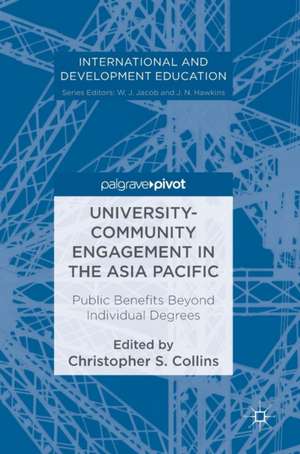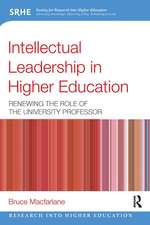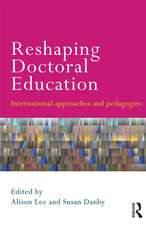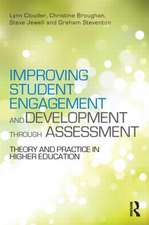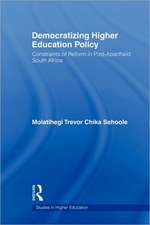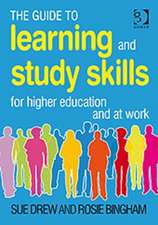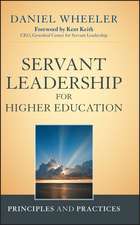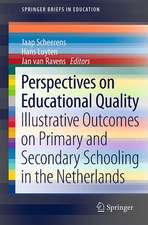University-Community Engagement in the Asia Pacific: Public Benefits Beyond Individual Degrees: International and Development Education
Editat de Christopher S. Collinsen Limba Engleză Hardback – 19 ian 2017
Din seria International and Development Education
-
 Preț: 302.20 lei
Preț: 302.20 lei -
 Preț: 301.72 lei
Preț: 301.72 lei -
 Preț: 301.72 lei
Preț: 301.72 lei -
 Preț: 305.50 lei
Preț: 305.50 lei -
 Preț: 304.83 lei
Preț: 304.83 lei -
 Preț: 303.28 lei
Preț: 303.28 lei -
 Preț: 274.23 lei
Preț: 274.23 lei -
 Preț: 302.20 lei
Preț: 302.20 lei -
 Preț: 308.81 lei
Preț: 308.81 lei -
 Preț: 305.50 lei
Preț: 305.50 lei -
 Preț: 305.50 lei
Preț: 305.50 lei -
 Preț: 304.38 lei
Preț: 304.38 lei -
 Preț: 304.38 lei
Preț: 304.38 lei -
 Preț: 299.79 lei
Preț: 299.79 lei -
 Preț: 303.28 lei
Preț: 303.28 lei -
 Preț: 304.38 lei
Preț: 304.38 lei -
 Preț: 307.68 lei
Preț: 307.68 lei - 8%
 Preț: 541.51 lei
Preț: 541.51 lei -
 Preț: 307.68 lei
Preț: 307.68 lei -
 Preț: 306.57 lei
Preț: 306.57 lei -
 Preț: 302.20 lei
Preț: 302.20 lei -
 Preț: 302.84 lei
Preț: 302.84 lei -
 Preț: 304.38 lei
Preț: 304.38 lei -
 Preț: 304.38 lei
Preț: 304.38 lei -
 Preț: 306.57 lei
Preț: 306.57 lei -
 Preț: 306.57 lei
Preț: 306.57 lei - 8%
 Preț: 535.04 lei
Preț: 535.04 lei - 8%
 Preț: 584.35 lei
Preț: 584.35 lei - 15%
 Preț: 644.82 lei
Preț: 644.82 lei - 15%
 Preț: 695.81 lei
Preț: 695.81 lei - 18%
 Preț: 891.96 lei
Preț: 891.96 lei - 18%
 Preț: 783.35 lei
Preț: 783.35 lei
Preț: 384.09 lei
Nou
Puncte Express: 576
Preț estimativ în valută:
73.50€ • 79.81$ • 61.74£
73.50€ • 79.81$ • 61.74£
Carte tipărită la comandă
Livrare economică 23 aprilie-07 mai
Preluare comenzi: 021 569.72.76
Specificații
ISBN-13: 9783319452210
ISBN-10: 3319452215
Pagini: 176
Ilustrații: XI, 126 p. 7 illus.
Dimensiuni: 148 x 210 x 10 mm
Greutate: 0.32 kg
Ediția:1st ed. 2017
Editura: Springer International Publishing
Colecția Palgrave Macmillan
Seria International and Development Education
Locul publicării:Cham, Switzerland
ISBN-10: 3319452215
Pagini: 176
Ilustrații: XI, 126 p. 7 illus.
Dimensiuni: 148 x 210 x 10 mm
Greutate: 0.32 kg
Ediția:1st ed. 2017
Editura: Springer International Publishing
Colecția Palgrave Macmillan
Seria International and Development Education
Locul publicării:Cham, Switzerland
Cuprins
Chapter 1. Defining Academic Public Good.- Chapter 2. Post-Secondary Public Health Education: Its Meaning and Value beyond the Walls of the Academic Institution.- Chapter 3. Continued Learning in an Aging Society: A University-Community Collaborative Educational Intervention in Taiwan.- Chapter 4. Digital Heritage as a Rhetorical Tool for Community and Cultural Preservation.- Chapter 5. Creative Tourism and University-Community Engagement: The Case of Trat Province, Thailand.- Chapter 6. The Impact of University-Community Projects: A Case Study at Vietnam National University.- Chapter 7. The Challenges and Benefits of Transnational Higher Education: A Case Study of Sino-foreign Cooperation University in China.- Chapter 8. University-Community Connections and the Thai Concept of Sufficiency: The Case of 9 Boworn.
Notă biografică
Christopher S. Collins is Assistant Professor of Higher Education at Azusa Pacific University, USA, and Associate Director of the Asia Pacific Higher Education Research Partnership at the East-West Center in Honolulu, Hawaii. His research focuses on the function of higher education in society and its role in social and economic progress.
Textul de pe ultima copertă
This edited volume creates a framework for understanding academic public good and offers case studies and perspectives as in depth examples of the ways in which colleges and universities engage with the community to produce social benefits. Focusing on the Asia Pacific region, the authors discuss examples of engagement that produce consciousness, partnerships, and services that are broadly available to the public and enhance the progress of society. The authors argue that, unlike an individual degree, these are public benefits that should be focused upon and featured more readily so that the breadth of university benefits come to be better understood.
Christopher S. Collins is Assistant Professor of Higher Education at Azusa Pacific University, USA, and Associate Director of the Asia Pacific Higher Education Research Partnership at the East-West Center in Honolulu, Hawaii. His research focuses on the function of higher education in society and its role in social and economic progress.
Caracteristici
Eclectic and multidisciplinary approach by contributors and centered around university-community partnerships Chapters draw upon country and regional case study examples of community engagement in higher education across the Asia Pacific Region Addresses issues related to how higher education institutions deal with such issues as technology trends, public health, tourism, internationalization, and integration with local and national communities across the region
